
This text shows a real case of how the Open Data Editor (ODE) impacted the workflow of an organisation working to serve the public good.
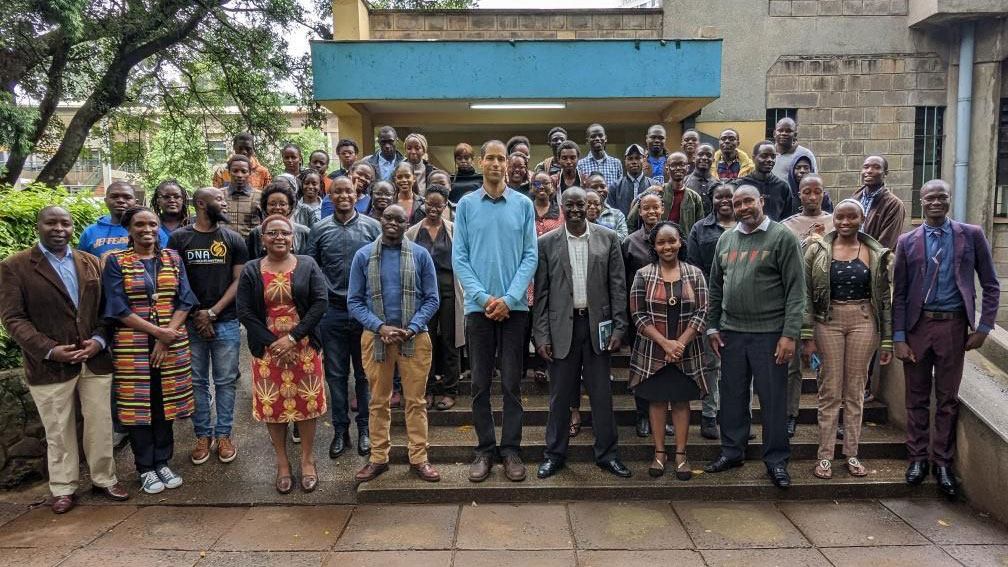
Staff and students at the BHKi campus outreach at the University of Nairobi. Photo: BHKi
Organisation: Bioinformatics Hub of Kenya Initiative (BHKi)
Location: Nairobi, Kenya 🇰🇪
Knowledge Area: Genomic Research & Open Science
Type of Data: Genomic sequences
Co-founded by Pauline Karega, BHKi is a grassroots collective of 400+ researchers, students, and scientists advancing bioinformatics in Kenya. Their mission: bridge the gap between cutting-edge genomic research and Africa’s next-generation scientists by democratising data literacy.
The Challenge
Problem
- “Dirty data” epidemic: Genomic datasets from open repositories (e.g., VectorBase, MalariaGEN) often lack metadata or have inconsistent formatting, forcing researchers to waste weeks cleaning files before analysis.
- Intimidating tools: Undergraduate students (BHKi’s primary audience) are deterred by command-line tools (e.g., R, Python) and struggle to interpret raw CSV outputs from genomic pipelines.
- Resource barriers: Limited access to high-performance computing (HPC) and funding restricts early-career researchers from contributing to critical health projects (e.g., malaria surveillance).
Impact
- 60% of BHKi’s training time was spent troubleshooting dataset errors rather than teaching analysis.
- Poor data quality led to misinterpretations in student projects, such as mislabeled Plasmodium (malaria parasite) samples.
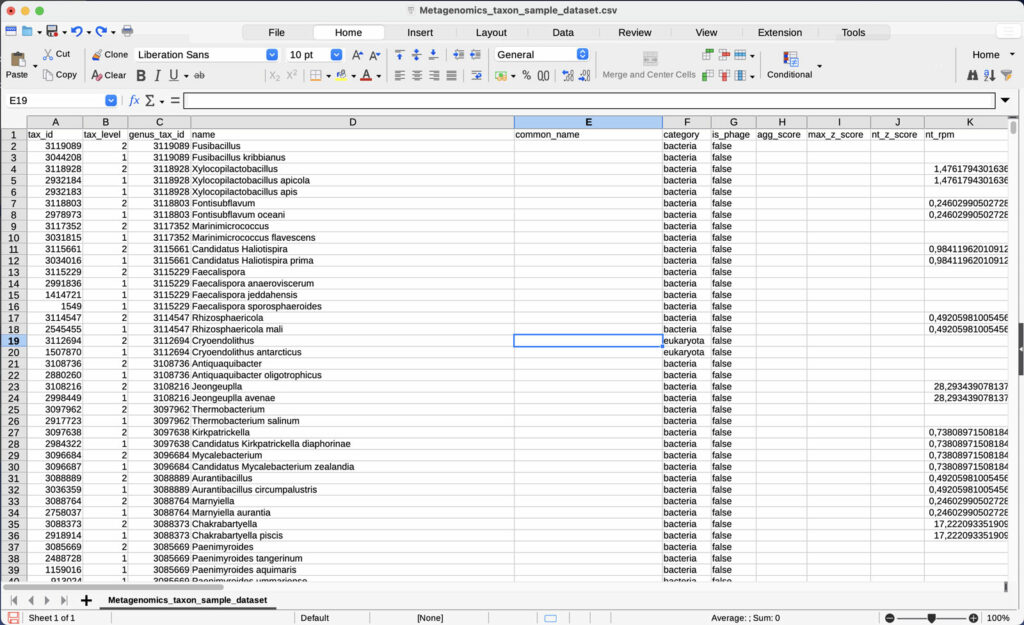
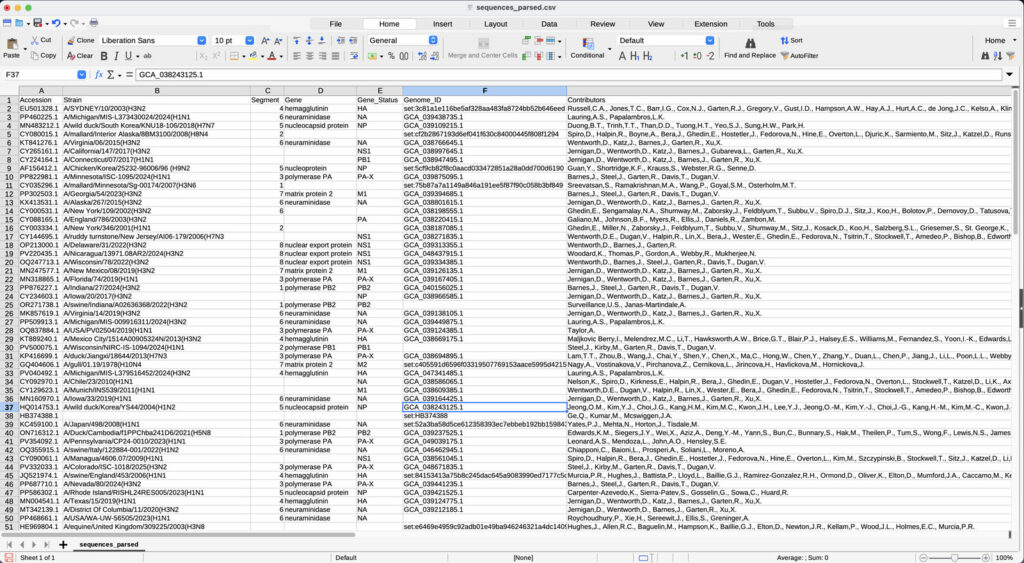
Examples of two tables with highly technical genomic data that can overwhelm graduate students.
The Solution
BHKI integrated the Open Data Editor (ODE) into two core workflows:
- Community Data Collection:
- Audited BHKi’s training-needs surveys (collected via Google Forms), fixing errors like invalid fields and duplicate columns.
- Used ODE’s metadata panel to standardise schemas for future surveys.
- Genomic Data Education:
- Pre-processed open datasets (e.g., MalariaGEN’s Plasmodium genomes) in ODE to visually teach students how to:
- Identify taxon IDs and sample attributes.
- Link metadata to analysis outputs (e.g., metagenomic CSV files).
- Replaced “black screen anxiety” (command-line) with ODE’s intuitive interface during university outreach.
- Pre-processed open datasets (e.g., MalariaGEN’s Plasmodium genomes) in ODE to visually teach students how to:
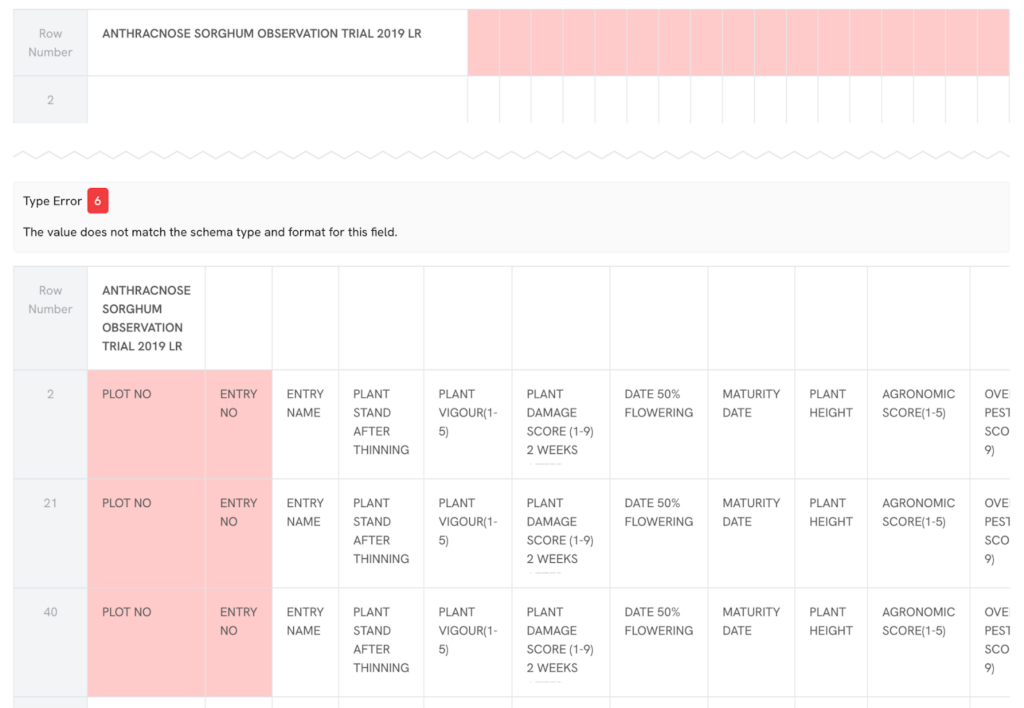
Example screenshot from ODE showing a lab notebook used during fieldwork data collection and flagged type errors.
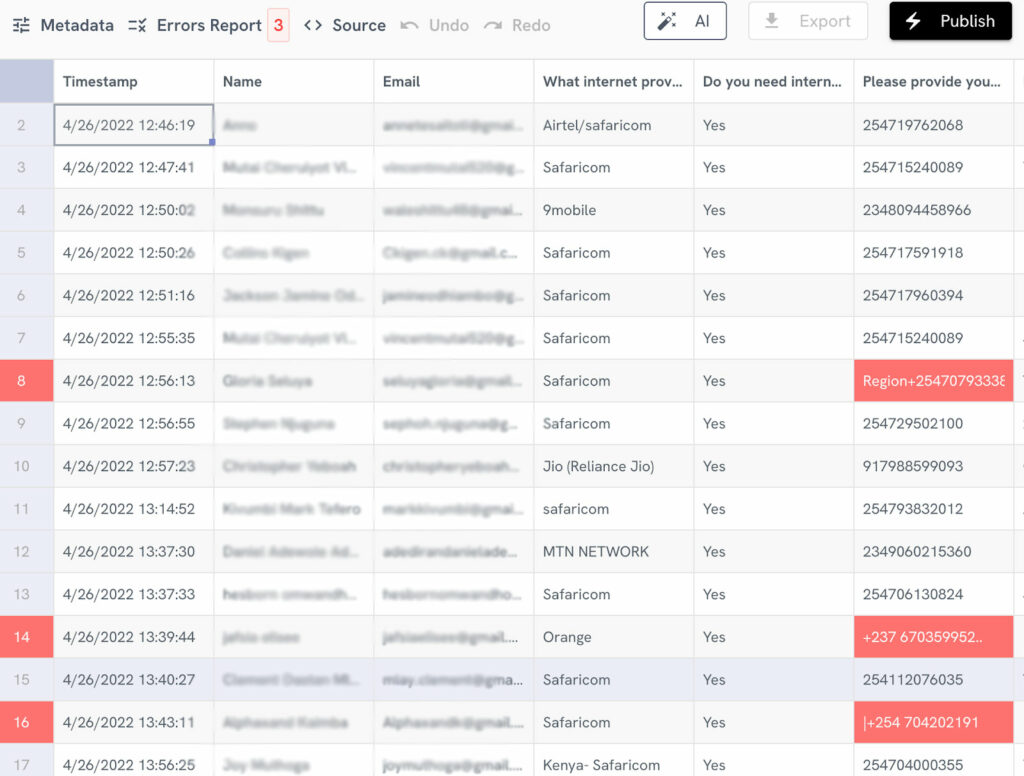
Example of ODE detecting misspelled telephone numbers in the research community’s internal survey.
The Results
- Faster onboarding: Reduced dataset cleaning time by 70% for student projects.
- Improved data literacy: 30+ undergraduates used ODE to analyse VectorBase datasets without coding.
- Community empowerment: BHKi plans “ODE hack days” to crowdsource data cleaning across their Slack community (400+ members).
Quote

Pauline Karega, Coordinator
“ODE turns genomic data from a wall of scary numbers into something tangible. When a student sees a Plasmodium sample’s metadata neatly organised, they realise, I can do this. For African researchers, that confidence is everything – it’s how we build a pipeline of homegrown talent.”
About the Open Data Editor

The Open Data Editor (ODE) is Open Knowledge’s new open source desktop application for nonprofits, data journalists, activists, and public servants, aiming at helping them detect errors in their datasets. It’s a free, open-source tool designed for people working with tabular data (Excel, Google Sheets, CSV) who don’t know how to code or don’t have the programming skills to automatise the data exploration process.
Simple, lightweight, privacy-friendly, and built for real-world challenges like offline work and low-resource settings, ODE is part of Open Knowledge’s initiative The Tech We Want — our ambitious effort to reimagine how technology is built and used.
And there’s more! ODE comes with a free online course that can help you improve the quality of your datasets, therefore making your life/work easier.
Download Open Data Editor 1.4.0 using the following buttons:
↪️ Take the course: Learn how to use ODE

All of Open Knowledge’s work with the Open Data Editor is made possible thanks to a charitable grant from the Patrick J. McGovern Foundation. Learn more about its funding programmes here.








